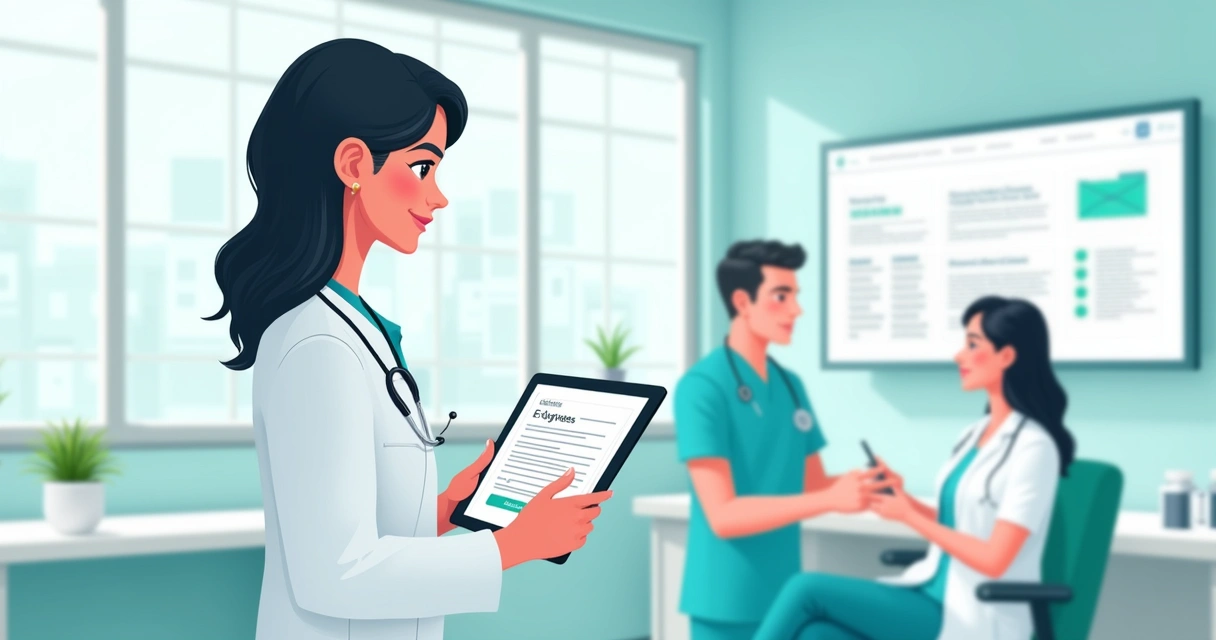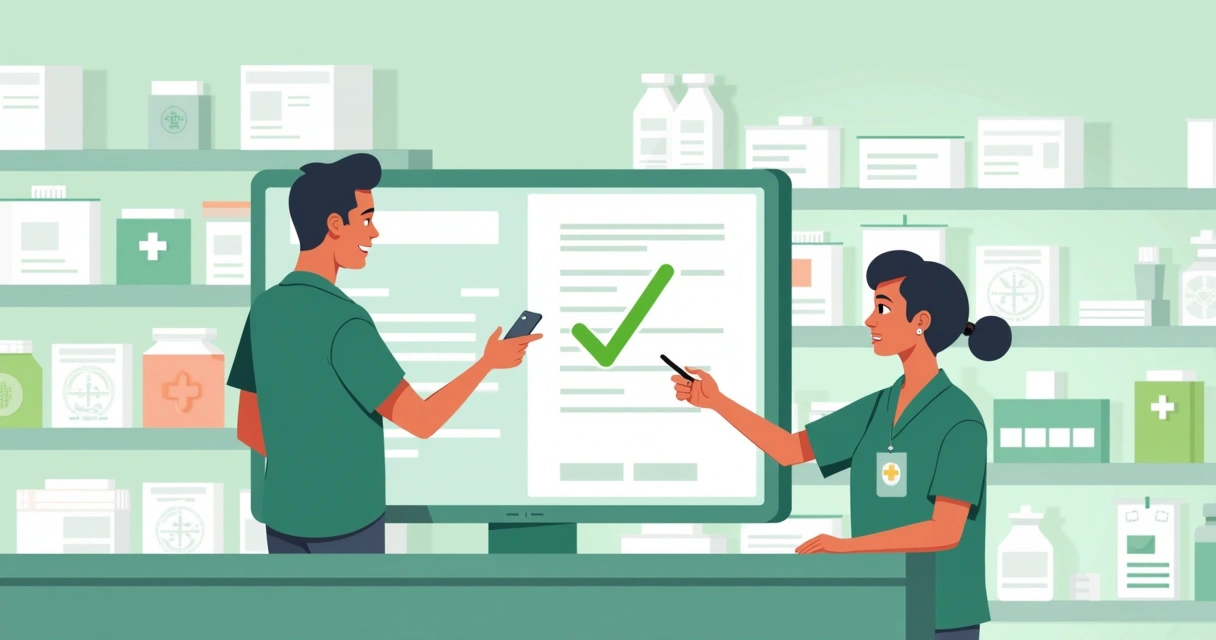The world of healthcare is changing fast. Hospitals are busier, clinics serve more patients remotely, and paperwork just keeps piling up. But even with all this, accuracy, safety, and speed are still top needs. E-signatures, like those offered by CloudSign.ie, are now a vital part of taming healthcare’s paper monster.
This isn’t some far-off future. This is what 2025 already looks like for standout clinics and health facilities.
Below, I’ll share seven ways real clinics, GPs, and healthcare businesses in Ireland and beyond have left paper behind, instead, they are trusting e-signatures to do the heavy lifting.
Patient intake forms without the waiting room shuffle
Picture this: a patient walks into your clinic, but instead of balancing a clipboard in one hand and their phone in another, they’ve already filled in and signed all the forms at home. Before they even step inside, their digital information and e-signed consent are ready to go. With CloudSign.ie, patients simply receive a secure link, complete their details, e-sign on their mobile or computer, and the forms are instantly delivered to staff. There’s less time spent on handwriting deciphering, and also, no loose sheets to misfile.
- No more paper piles behind the front desk
- Everything is GDPR-compliant and securely stored
- Staff see signed documents in real-time
Less paper, less chaos.
Some other digital signature services try to do this, yes. But CloudSign.ie’s forever free plan for individuals means even small clinics can test the waters, with no risk or upfront commitment.
Remote consent for telemedicine
Telemedicine’s rise has been huge, but it only really works when both sides can trust the process. Getting consent for remote procedures, therapies, or even just sending medical summaries can be a headache with paper. CloudSign.ie lets doctors securely send consent forms to patients anywhere, even while they’re talking over video. Patients sign in seconds, and the clinic receives proof immediately.
You’ll find stories of GPs who once dreaded post and scanner delays, now simply using digital tools for consent and moving on with their day.
- Medics can handle consent forms from rural patients
- Stays compliant with EU signature laws (read more in agreement signatures explained: legally binding)
- No extra tools or hardware, just a browser
Managing NDAs with specialist consultants
Hiring a specialist to review a unique or sensitive case? That often means signing a Non-Disclosure Agreement (NDA) or confidentiality contract. Traditionally, this process takes time. But now, e-signature platforms like CloudSign.ie send these agreements instantly, track when they are opened and signed, and manage storage securely.
- No mailing back-and-forth
- Digital records hold up in Irish courts
- Quick access for audits or compliance inspections
We sometimes hear about large providers that use well-known global platforms, but CloudSign.ie goes further by focusing on European standards and seamless Irish integrations. For clinics considering which electronic signature programs are best in 2025, that’s a key advantage.
Faster approval for insurance coverage
Securing approval for a treatment or procedure often requires coordination between patient, insurer, and multiple providers. All it takes is one lost paper for weeks of delay. Here, e-signatures step in to speed things up. With CloudSign.ie’s automated workflow, everyone gets a digital copy to sign, no matter where they are.
- Insurance approvals tracked and timestamped
- AI-driven contract management to highlight missing information or risk
- Instant records help clinics chase up insurers
In 2025, many Irish facilities say this kind of tool slashes approval time. For more on managing contracts and health agreements digitally, see the complete guide to contract management software in healthcare.

Processing clinical trials paperwork
Clinical trials generate mountains of documentation. Consent to participate, protocol agreements, data grants, and more, all must be signed by the right people, sometimes across different countries. E-signatures have made this process manageable.
Pharma sponsors and clinical research groups now use CloudSign.ie for remote participant consent, status tracking, and automated reminders for missed steps.
- Track who has signed, and when
- Keep data in the EU, per GDPR and Irish law
- Audit logs allow for quick, easy regulatory compliance
Competitors like DocuSign are sometimes discussed, but many Irish trial coordinators trust CloudSign.ie since it’s built for local compliance and doesn’t charge high enterprise fees for basic needs.
Employment contracts for medical staff
Healthcare employment can be fast-paced. You might need to quickly onboard a nurse for a flu season, or sign a locum for a short-term contract. Printing, scanning, and chasing signatures isn’t the best use of HR time, especially with staff moving between facilities.
With CloudSign.ie, employment offers and contracts go out digitally. Teams can sign instantly from mobile devices, and HR staff track everything in a single view. If signatures are needed from multiple places, say, a doctor moving from Dublin to Galway, they can sign anywhere, anytime.
- Onboarding goes faster, staff start sooner
- Records stored securely, easy to find during audits
- Built-in reminders so no one forgets a form
Pharmacy orders & prescription controls
Pharmacies also live under strict controls about scripts and orders. They often deal with regular stock orders, controlled drugs forms, and supply approvals. Moving these documents to an e-signature platform saves time and means local and EU rules are met, every time. With CloudSign.ie’s integration for small teams, pharmacies can automate approvals and create digital records for regulators.
- Simpler for staff who aren’t tech experts
- Instant notifications when items are approved or signed
- Permanent records (no more faded receipts)
If you're curious about choosing the best e-signature programs in 2025, consider what makes daily pharmacy work less stressful. CloudSign.ie’s AI tools flag missing signatures, reduce paperwork errors, and help independent pharmacies compete.

Medical device order approvals and supply chain
Hospitals and clinics spend serious amounts on ordering and maintaining medical devices. Traditionally, this involves signed POs, compliance certificates, service contracts, and a constant paper shuffle. By switching to digital e-signatures, many Irish facilities are seeing delays drop and errors reduced.
CloudSign.ie’s platform securely connects with supply chain software, keeps a digital audit trail, and can spot contract risks using AI, so a missing form won’t put repairs or replacements on hold.
- Device orders and contracts shared safely in the cloud
- Signed records for manufacturers, inspectors, and service teams
- Easier renewals and flagging of expiring agreements
For a simple summary on the speed and security of digital signature software, the resource on signing documents faster and safer in 2025 is a useful read.
Conclusion: healthcare’s digital leap is real, and within reach
Some people still say, “Paper is safer.” But paper gets lost, signatures get missed, and storage gets expensive. Swift, secure, and legal, e-signatures are becoming the norm for hospitals, GPs, clinics, and pharmacies here in Ireland and further afield.
CloudSign.ie stands out with simple pricing, a free forever plan so you can test the waters, AI-powered risk detection, and Irish/EU law compliance built in by design. If you want to reduce costs, cut stress, and put patients first, now is the time to look at digital signatures for your healthcare business.
Paper slows you down. Digital sets you free.
Ready to see how CloudSign.ie can help your clinic, pharmacy, or healthcare group? Try our platform for free now, or learn more about our contract management and signature tools built just for Irish healthcare.
Frequently asked questions
What is an e-signature in healthcare?
An e-signature in healthcare is a legally binding digital way to sign documents. Instead of ink on paper, you sign forms using a computer, tablet, or mobile. E-signatures can be used for consent forms, NDAs, contracts, prescriptions, and more, making healthcare paperwork much simpler and faster. Platforms like CloudSign.ie are built so healthcare staff and patients can sign anywhere, securely.
How secure are e-signatures for patients?
Really secure. E-signatures are encrypted and tracked, far safer than faxes or loose paper. CloudSign.ie makes sure every signature is stored safely, tracks who signs and when, and follows strict GDPR and EU rules. Patients’ personal and health info is protected, and it’s much harder to lose or share by accident compared to paper files.
How to use e-signatures for consent forms?
It’s simple. The healthcare provider emails or texts a link to the patient. The patient clicks the link, reads the consent form, and applies their e-signature. Many tools work on computers or mobile, so no apps or printers are needed. CloudSign.ie automatically notifies providers when forms are signed, keeping everyone in the loop.
What are the benefits of e-signatures?
E-signatures let healthcare move faster, cut paper use, and lower admin costs. They help prevent errors (no more unreadable handwriting), make it easier to track forms, and securely store everything in one place. Platforms like CloudSign.ie also use AI to flag risks, missing signatures, or contract deadlines, saving both time and money.
Is it legal to use e-signatures in healthcare?
Yes, they are legal in Ireland, across the EU, and other places, so long as you follow specific laws. In the EU, eIDAS rules say e-signatures are valid for almost all healthcare paperwork. CloudSign.ie is built to meet these standards. If you need to know which kinds of documents always count as legally signed, check out CloudSign.ie’s summary of legally binding agreement signatures.
